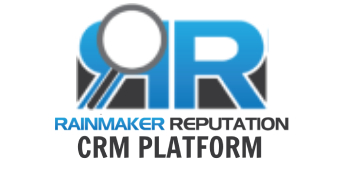Mastering the Art of Differentiating Good Debt from Bad Debt for Financial Prosperity
Good debt refers to financial commitments undertaken for acquiring assets that are likely to appreciate in value or generate income over time. Common examples of good debt include mortgages, which enable individuals to purchase homes, and student loans, which enhance one’s qualifications and career opportunities. In contrast, bad debt consists of liabilities that detract from your financial well-being, such as credit card debt and consumer loans, which typically incur high-interest rates without yielding significant financial returns. Grasping these distinctions is essential for making educated financial choices that promote long-term stability and growth.
Investigating the Economic Factors Contributing to Rising Household Debt
In the UK, there is a noticeable increase in the number of individuals and families struggling with mounting levels of debt, driven by a variety of economic influences. Many households find themselves exceeding their financial capacity, often resorting to credit cards and loans to cover essential living expenses, including mortgages and everyday costs. Understanding the distinction between necessary borrowing and excessive spending is crucial for effective financial management. By identifying unnecessary expenditures, individuals can take proactive measures to achieve greater financial stability and mitigate the accumulation of debt.
Comprehensive Analysis of Bad Debt and Its Financial Consequences
Bad debt is characterized by financial obligations incurred for items that depreciate quickly or fail to provide long-term benefits. This includes debts arising from high-interest loans, particularly credit cards, which can ensnare borrowers in a detrimental cycle of debt due to mounting interest rates. Such liabilities pose a serious threat to financial health, especially when they exceed one’s repayment capacity. The implications of bad debt can be significant, leading to financial distress and limiting future opportunities.
The burden associated with bad debt encompasses any financial obligations that worsen your economic condition, making repayment increasingly difficult. High-interest credit card debt, costly overdrafts, or loans taken out to cover unexpected expenses can spiral out of control if not managed carefully. It is vital to evaluate your capacity to service any debt before committing to it, as all forms of debt can shift from manageable to overwhelming if not handled with care and discipline.
A practical strategy for relieving the pressure of bad debt is to consider a debt consolidation loan. This approach allows individuals to combine multiple debts into a singular loan with a manageable monthly payment, thereby simplifying the repayment process and often resulting in lower overall interest rates. The experts at Debt Consolidation Loans are ready to guide you through this process, helping you regain control over your financial situation and pave the way toward a more secure future.
Evaluating the Financial Impact of Carrying £5000 Debt
Holding a debt of £5000 can have concerning implications, but its significance largely depends on the nature of the debt and your overall financial health. It is essential to recognize that certain types of debt, such as mortgages and student loans, are generally perceived as good debts. If your £5000 debt stems from necessary consumer spending or credit cards, and you can manage the monthly payments comfortably, it may not be a major concern. However, if you struggle with repayments or are juggling several loans, it may be wise to investigate alternatives like a debt consolidation loan, which consolidates your debts into one affordable payment with a consistent interest rate, thereby alleviating financial stress.
Finding Out Your Credit Status: Are You Considered Bad Debt?
To determine if you’re classified as having bad debt, it is advisable to contact the UK’s credit reference agencies (CRAs). These organizations compile and maintain records concerning your credit management and payment history. The three main CRAs you should be aware of include:
Each CRA generates a credit report or credit file that details your creditworthiness, and these reports may differ from one agency to another. Therefore, reviewing all three reports is advisable to obtain a well-rounded perspective of your credit status and identify any discrepancies that may need addressing.
Evaluating Student Loan Debt: Is It a Financial Burden?
While a student loan may initially appear to be a financial burden, it is generally categorized as good debt. This government-supported loan is specifically structured to enhance your education and improve your long-term earning potential. Typically, repayment begins after graduation and is adjusted according to your income, making it a manageable obligation. In certain scenarios, your loan may even qualify for forgiveness after 25 to 30 years, based on the loan type and your repayment history, establishing student loans as a strategic investment in your future success.
Are Car Loans Classified as Bad Debt?
To determine if a car loan should be considered bad debt, it is critical to evaluate the necessity and affordability of the vehicle. A reasonable car loan that finances a dependable vehicle can be classified as good debt, as it supports your ability to work and generate income. However, financing an extravagant vehicle or one that exceeds your budget can quickly transform a car loan into bad debt, leading to financial strain.
Understanding the Long-Term Consequences of Debt Management
While mortgages are classified as long-term debt and are generally viewed as good debt, managing bad debts such as credit card balances can become increasingly overwhelming. The stress associated with keeping up with repayments can adversely impact your overall well-being and mental health. To alleviate this stress, consolidating your debts into a single loan with one monthly payment and interest rate can provide significant relief, ultimately enhancing your financial outlook and restoring peace of mind.
Calculating Your Bad Debt Percentage for Enhanced Financial Insight
To determine your bad debt percentage, divide the total amount of your monthly or yearly bad debt by your overall monthly or annual income. Multiply the resulting figure by 100 to arrive at your bad debt percentage, which serves as a valuable gauge for assessing your financial health and stability. Regularly monitoring this percentage can help you stay on track and make informed financial decisions.
Recognizing When Bad Debt Can Be Written Off
It is indeed possible to write off bad debt, but this largely depends on your specific circumstances and the policies of your creditor. In exceptional cases, a creditor may decide to cease collection efforts. If you believe you have legitimate grounds for debt relief, initiating a dialogue with your creditor is crucial. Alternatively, considering options like a debt consolidation loan for bad credit can empower you to regain control over your financial obligations without formally requesting a debt write-off.
Duration of Negative Debt on Your Credit Report: What to Expect
Typically, negative information related to debt remains on your credit report for approximately seven years. This includes records of late or missed payments, accounts sent to collections, and bankruptcies, all of which can severely impact your creditworthiness and future borrowing potential.
Effective Strategies for Removing Bad Debt from Your Credit Report
If you encounter inaccurate negative information on your credit report, you can reach out to the appropriate Credit Reference Agency to request corrections. However, if the information is accurate, it may be challenging to have it removed. If you feel the situation is unjust, consider contacting your lender, as they may take into account removing minor negative entries, such as a single missed payment, although they are not obligated to do so.
Strategic Methods for Effectively Managing Bad Debt
To effectively manage your debt, it is vital to have a clear understanding of how much you owe, to whom, and the interest rates associated with each obligation. Prioritizing debts based on their urgency and interest rates can prove beneficial. Utilizing a debt consolidation loan can streamline this process by merging multiple debts into one manageable monthly payment to a single lender, thus reducing financial complexity and alleviating stress.
Proven Techniques for Successfully Tackling Bad Debt Challenges
The most effective approach to confronting bad debt is to take proactive measures. Several options are available to assist you in managing your debt, each leading to different outcomes. For individuals facing significant financial hardship, a Debt Relief Order (DRO) can provide relief by freezing your debts for a year, with the potential for cancellation if your financial situation does not improve. An Individual Voluntary Arrangement (IVA) enables you to make manageable repayments over a specified period, with any remaining balance discharged afterward, but this requires adherence to a legally binding contract. Conversely, bankruptcy can eradicate all debts at once, but it severely impacts your credit report and future borrowing potential.
A practical and less damaging alternative that will not adversely affect your credit report is a debt consolidation loan. This method combines all your debts into a single loan, resulting in one monthly payment, one lender, and one interest rate, significantly simplifying your debt management and enhancing your financial position.
Clarifying the Concept: Differentiating Between Good Debt and Bad Debt
Not all debt is created equal; it can be broadly categorized as either good or bad. Good debt encompasses financial obligations related to investments that bolster wealth creation or increase income, such as mortgages or student loans. In contrast, bad debt arises from credit card purchases or consumer loans that fail to contribute positively to your long-term financial health and can lead to financial instability.
In-Depth Exploration of Good Debt and Its Benefits
Good debt refers to financial obligations undertaken for investments that facilitate wealth accumulation or income enhancement. This includes mortgages and student loans, both of which can significantly improve your financial outlook and stability. Essentially, good debt is any borrowing that ultimately contributes to greater financial security and opportunities for wealth creation.
Good debt should not place you in a precarious financial situation. When securing a loan, it is vital to have a clear objective and a solid repayment strategy through regular, manageable payments. A prime example of good debt is a mortgage, which leads to homeownership over time. Similarly, utilizing a loan to consolidate various debts into a single payment can also be classified as good debt, simplifying your financial obligations and enhancing your financial management.
Other noteworthy examples of good debt include student loans, which represent an investment in your education to enhance career prospects and increase earning potential, or a car loan that provides access to job opportunities that may otherwise be out of reach, thereby promoting personal and professional growth.
Exploring the Advantages and Opportunities Presented by Good Debt
Good debt serves as a financial tool that fosters long-term economic stability and growth. This type of debt consists of loans taken for significant investments, like a mortgage for a home or a student loan for education. These debts are beneficial as they align with your financial growth and can enhance your earning capacity over time. It is crucial, however, to ensure that these debts remain manageable and do not exceed your repayment capabilities, allowing you to build a solid financial future.
The Effects of Zero Debt on Your Financial Landscape and Credit History
While being entirely debt-free may appear ideal, it can result in a lack of credit history, which is a critical component in establishing a robust credit score. Individuals without any debt may find their credit scores suffer just as significantly as those grappling with substantial debt challenges. Engaging in responsible borrowing and repayment strategies is essential for maintaining a healthy credit profile and ensuring access to future financial opportunities.
Evaluating Mortgages: The Long-Term Benefits and Financial Commitment
Mortgages are widely recognized as good debt because they represent a financial commitment to an appreciating asset—your home. A mortgage is a long-term investment that can significantly enhance your financial portfolio, especially in times of rising property values. As you pay down your mortgage, you build equity, which further strengthens your financial standing and provides opportunities for future financial leveraging.
Assessing the Value of Student Loans: The Long-Term Returns on Investment
Student loans are classified as good debt because they represent government-backed financial assistance aimed at advancing your education. This investment in your future can lead to superior career prospects and increased earnings over time, distinguishing it from consumer debt that lacks similar benefits and potential for growth.
Decoding the Debt-to-Income Ratio: Understanding Its Importance for Financial Health
The debt-to-income ratio (DTI) is a crucial financial metric that evaluates your total debt obligations in relation to your overall income. Lenders use this ratio to assess your repayment capacity when reviewing loan applications. Generally, a DTI below 36% is considered acceptable, with no more than 28% allocated to mortgage repayments, indicating a healthy balance between income and debt commitments. Monitoring your DTI can help you maintain financial stability and make informed borrowing decisions.
Understanding the Risks Associated with Long-Term Debt and Its Impact on Financial Well-Being
The concerns about the effects of long-term debt on financial well-being are prevalent. In the UK, many individuals carry some form of debt, whether through mortgages, business loans, or educational expenses. While borrowing can facilitate significant purchases, the key lies in effectively managing that debt. Problems arise when debt accumulates beyond manageable levels, particularly if not consolidated properly, leading to potential financial strain and personal distress.
Moreover, excessive debt can manifest in various ways, impacting not only financial stability but also overall health and well-being.
1. The Health Implications of Debt: Understanding the Connection
Research indicates a strong correlation between debt and adverse health outcomes. Studies have shown that financial stress can lead to health issues such as ulcers, migraines, and even heart-related conditions. Additionally, mental health can suffer, with anxiety and depression becoming prevalent among individuals facing overwhelming debt, especially when exacerbated by hidden fees or poor debt management practices.
2. The Effects of Debt on Your Credit Score: The Importance of Responsible Management
It is well-established that debt significantly affects your credit score, a crucial factor in securing loans or mortgages. Approximately 30% of your credit score is derived from your debt history, making responsible debt management essential to maintaining a favorable credit rating and ensuring your ability to access future credit.
3. Poor Spending Habits Cultivated by Debt: Recognizing the Risks
The convenience of purchasing on credit can foster detrimental spending habits. When items can be financed or paid off over time, tracking actual expenses can become challenging, making purchases seem more affordable than they genuinely are. This behavior can lead to rapid debt accumulation if not carefully monitored, underscoring the importance of financial awareness and discipline.
Recognizing the potential challenges associated with debt is vital; equally important is developing effective management strategies. Many individuals discover that Debt consolidation loans can simplify their repayment processes, facilitating the management of multiple debts. Contact us today to learn more about how you can regain control of your financial situation and work towards a brighter financial future.
Evaluating Debt Consolidation Loans: Are They the Right Financial Solution for You?
Debt consolidation loans provide an effective solution for individuals seeking to regain control over their financial circumstances by consolidating multiple debts into a single, manageable payment.
The Article Understanding Good Debt and Bad Debt: A Clear Guide Was Found On https://limitsofstrategy.com


No responses yet